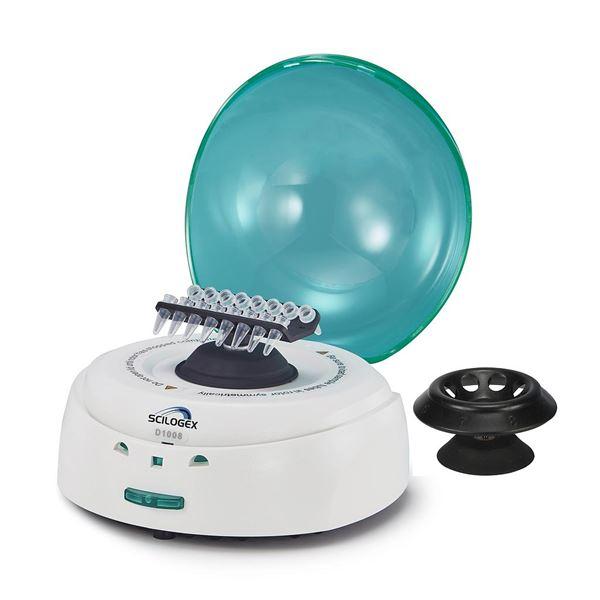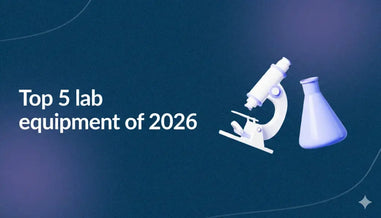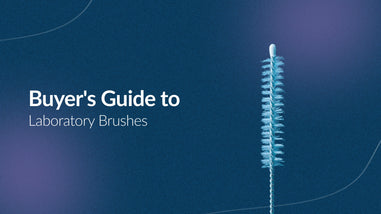- No products in the cart.
Centrifuge equipment is a vital tool used in various industries and laboratories for separating components of different densities. Whether you run a research laboratory, a medical facility, or an industrial operation, choosing the right centrifuge equipment is crucial for efficient and accurate results. However, with a wide range of options available, making the right decision can be overwhelming. In this guide, we will walk you through the essential factors to consider, key features to look for, and helpful tips to ensure you make an informed choice when investing in centrifuge equipment for your laboratory.
-
Identify Your Specific Needs
The first step in choosing the right centrifuge equipment is to identify your specific needs and applications. Consider the type of samples you will be working with, the required centrifugation speed, and the volume capacity. Different industries and laboratories have varying demands, such as clinical labs needing high-speed centrifuges for blood separation, while research labs may require a wider range of applications and customizable features.

-
Centrifuge Types: Fixed-Angle vs. Swinging-Bucket vs. Ultracentrifuge
There are different types of centrifuges available, each with its advantages and suitable applications:
- Fixed-Angle Centrifuge: This type is ideal for processing smaller volumes and achieving better separation of particles with higher relative centrifugal force (RCF). They are commonly used for routine lab work and are more suited for samples with smaller volumes.
- Swinging-Bucket Centrifuge: Swinging-bucket rotors are suitable for larger sample volumes and are often preferred for samples in buckets or bottles. They are gentle on delicate samples and are used in various fields, including biochemistry and molecular biology.
- Ultracentrifuge: If you require ultra-high-speed centrifugation for applications like separating subcellular particles or viruses, an ultracentrifuge is the way to go. They offer very high RCF values and are essential for advanced research in virology, genetics, and cell biology.
-
Capacity and Throughput
Consider the capacity and throughput of the centrifuge equipment to ensure it meets your workload requirements. If your lab or facility handles a high volume of samples daily, you'll need a centrifuge that can process multiple samples simultaneously or has a fast processing time. The capacity and throughput should align with your anticipated workload to maintain efficiency.
-
Speed and RCF Range
The speed and relative centrifugal force (RCF) range are crucial factors to consider when choosing a centrifuge. The required RCF will depend on the type of samples you work with and the level of separation needed. Ensure that the chosen equipment offers the required speed and RCF values for your specific applications.
-
Temperature Control and Cooling Options
Temperature control is essential, especially for temperature-sensitive samples. Look for centrifuges with precise temperature control options, including refrigeration or cooling features. Some applications, like DNA extraction or cell culture work, demand consistent and controlled temperature conditions to preserve sample integrity.
-
User-Friendly Interface and Safety Features
An intuitive user interface and safety features are essential for efficient and safe operation. Look for centrifuges with user-friendly controls, easy programming options, and clear display screens. Safety features like lid-locking mechanisms, imbalance detection, and automatic rotor recognition are crucial to prevent accidents and protect users.
-
Maintenance and Service Support
Centrifuge equipment, like any other laboratory instrument, requires regular maintenance and occasional repairs. Opt for brands or models that offer reliable service support and easy availability of spare parts. Having a service agreement in place can ensure prompt maintenance and minimize downtime.
-
Noise and Vibration Levels
Excessive noise and vibration can be disruptive and may interfere with sensitive experiments or create an uncomfortable working environment. Consider centrifuges designed with noise reduction features and vibration dampening to maintain a peaceful workspace.
-
Budget Considerations
While investing in high-quality centrifuge equipment is essential, it is also crucial to work within your budget constraints. Determine the features that are absolutely necessary for your applications and prioritize accordingly. Balance your needs with the available options to find the best value for your investment.
Here are some additional tips for choosing a centrifuge:
- Read reviews: Before you buy a centrifuge, read reviews from other users. This will help you get a sense of the pros and cons of different models.
- Talk to a sales representative: If you are still having trouble deciding which centrifuge to buy, talk to a sales representative. They can help you assess your needs and recommend a model that is right for you.
- Consider the size of your samples: If you will be centrifuging large samples, you will need a centrifuge with a large rotor.
- Think about the future: If you think your needs may change in the future, choose a centrifuge that has the capacity to grow with you.
- Buy from a reputable dealer: When you buy a centrifuge, make sure you buy from a reputable dealer. This will ensure that you get a quality product and that you have access to customer support if you need it.
Conclusion
Choosing the right centrifuge equipment for your business or laboratory is a critical decision that can significantly impact the efficiency and accuracy of your work. By identifying your specific needs, understanding the different types of centrifuges, considering capacity, speed, and safety features, you can make an informed decision that aligns with your requirements. Remember to choose reputable brands and explore options that offer reliable service support to ensure seamless operation and longevity of your centrifuge equipment. With careful consideration and research, you can find the perfect centrifuge that will enhance productivity and yield accurate results for your business or laboratory.
For over 40 years, Lab Pro Inc. has been committed to delivering the highest quality lab equipment such laboratory centrifuges, lab supplies, Excelta hand tools, reagents, distance learning kits, and cleanroom PPE apparel. Renowned by global medical device companies and laboratories, we ensure exceptional quality in every product. Contact us online or call 888-452-2776 to learn more. Discover top-notch lab supplies and elevate your experiments today!













































Really very happy to say,your post is very interesting to read.I never stop myself to say something about it.You’re doing a great job.Keep it up.